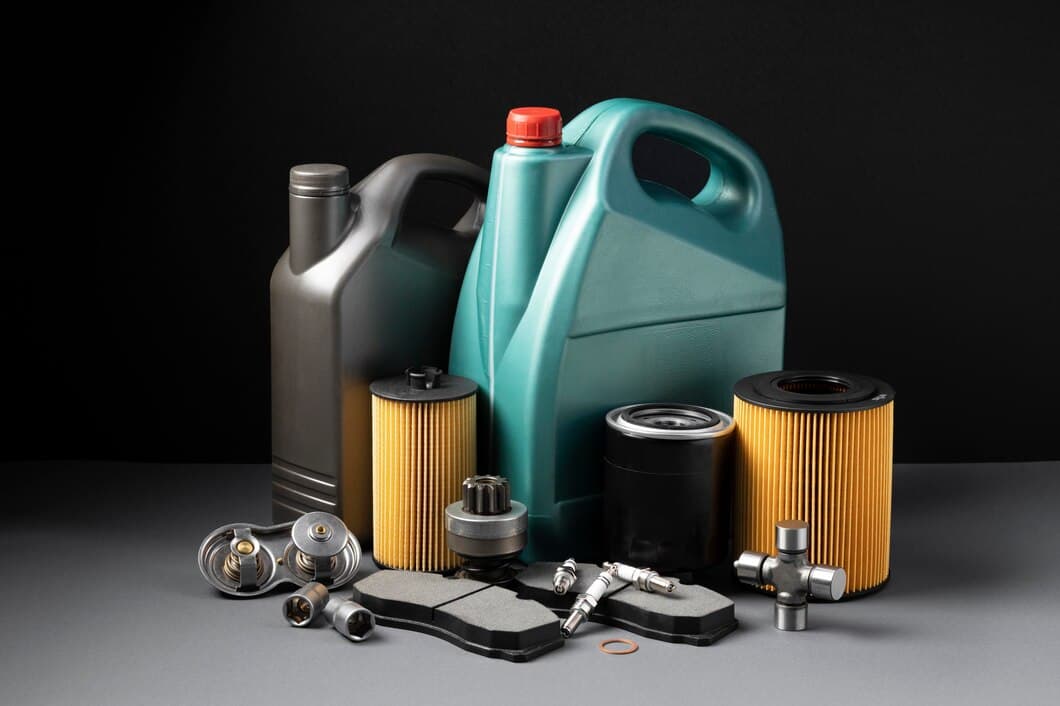Motor oil is the lifeblood of your vehicle’s engine, ensuring it runs smoothly and efficiently. But with so many options available, choosing the right oil can be confusing. Two of the most common types are synthetic and conventional motor oil, each with distinct advantages and disadvantages. Understanding their differences can help you make an informed decision tailored to your driving habits and vehicle needs.
What Is Conventional Motor Oil?
Conventional motor oil, often referred to as mineral oil, is derived from crude oil. It undergoes refining to remove impurities and improve its performance. While it has been the standard for decades, advancements in automotive technology have highlighted its limitations.
Key Characteristics:
- Cost-Effective: Conventional oil is typically more affordable than synthetic alternatives, making it a popular choice for older vehicles or those with lower mileage.
- Basic Performance: While effective for standard driving conditions, conventional oil may not perform as well under extreme temperatures or heavy loads.
- Frequent Oil Changes: Conventional oil tends to break down faster, requiring more frequent oil changes to maintain engine health.
What Is Synthetic Motor Oil?
Synthetic motor oil is engineered in a laboratory using chemically modified compounds. This results in a highly refined product with superior performance characteristics compared to conventional oil.
Key Characteristics:
- Enhanced Engine Protection: Synthetic oil provides better lubrication, reducing engine wear and prolonging engine life.
- Temperature Resistance: It remains stable in both high and low temperatures, ensuring optimal performance year-round.
- Longer Intervals Between Changes: Synthetic oil doesn’t degrade as quickly, allowing for extended periods between oil changes.
Key Differences Between Synthetic and Conventional Oil
Composition and Refinement
The primary difference lies in how the oils are produced. Conventional oil is a natural product, refined from crude oil, while synthetic oil is man-made, designed to meet specific performance criteria. This gives synthetic oil a cleaner and more uniform molecular structure, which translates to superior performance.
Performance and Efficiency
- Viscosity Stability: Synthetic oil maintains consistent viscosity under extreme conditions, such as cold starts or high engine loads, whereas conventional oil can thicken or thin out, reducing its effectiveness.
- Engine Cleanliness: Synthetic oil contains fewer impurities, which helps prevent sludge buildup and keeps the engine cleaner over time.
Longevity and Cost
While synthetic oil is more expensive upfront, its longevity often offsets the higher cost. Conventional oil requires more frequent changes, which can add up over time. For high-performance vehicles or those driven in harsh conditions, synthetic oil may prove to be more cost-effective in the long run.
Environmental Considerations
When choosing motor oil, it’s important to consider the environmental impact. Synthetic oil production typically involves more energy-intensive processes, but its longer lifespan means less frequent disposal. Conventional oil, on the other hand, requires more frequent changes, which can contribute to increased waste if not properly recycled. Opting for synthetic oil could be a more eco-friendly choice in the long term if you drive regularly or have a high-performance vehicle.
When to Choose Conventional Oil

Conventional oil is a suitable option for certain scenarios:
- Older Vehicles: If your car has been running on conventional oil for years without issues, there may be no need to switch.
- Budget Constraints: For drivers seeking a cost-effective solution for standard commuting, conventional oil is a practical choice.
- Low Mileage Use: If your vehicle is rarely used or driven for short distances, conventional oil may suffice.
When to Choose Synthetic Oil
Synthetic oil is ideal for drivers who:
- Drive in Extreme Conditions: Whether it’s freezing winters or scorching summers, synthetic oil provides superior performance.
- Own High-Performance Vehicles: Sports cars, luxury vehicles, and modern engines often require synthetic oil for optimal performance.
- Want Fewer Oil Changes: If you prefer less frequent maintenance, synthetic oil’s durability makes it a convenient choice.
Hybrid Options: Synthetic Blend Oils
For those who want a middle ground, synthetic blend oils combine the best of both worlds. They mix synthetic and conventional oils to offer improved performance at a lower cost than full synthetic oils. This can be a great option for drivers looking to balance budget and performance.
Advantages of Synthetic Blends
- Improved Durability: Synthetic blends last longer than conventional oils but are less costly than full synthetic options.
- Versatility: They perform well in a wide range of driving conditions, making them suitable for most vehicles.
Practical Tips for Motor Oil Maintenance
Regardless of the type of motor oil you choose, regular maintenance is key to ensuring your engine runs smoothly:
- Check Oil Levels Regularly: Make it a habit to check your oil levels and top up when necessary.
- Stick to Recommended Intervals: Follow your vehicle manufacturer’s guidelines for oil changes.
- Recycle Used Oil: Properly dispose of used oil to minimize environmental impact.
- Monitor Engine Performance: Pay attention to signs of poor performance, such as unusual noises or reduced fuel efficiency, which could indicate it’s time for an oil change.
Conclusion
Choosing between synthetic and conventional motor oil ultimately depends on your vehicle’s needs, your driving habits, and your budget. While synthetic oil offers superior protection, longevity, and performance, conventional oil remains a viable option for older vehicles and low-mileage drivers. Understanding these differences ensures your engine gets the care it needs to perform at its best. By considering factors like cost, driving conditions, and environmental impact, you can make an informed choice that benefits both your vehicle and the planet.
